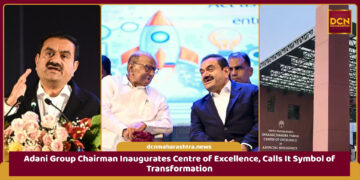Pune: Maharashtra took a decisive step toward resolving long-pending land and revenue-related disputes with the launch of its first-ever Revenue Lok Adalat in Pune district. This pioneering initiative aims to streamline justice delivery for citizens and reduce the burden on the judicial and revenue systems.
Deputy Chief Minister Ajit Pawar, while inaugurating the event at the Pune District Collectorate, highlighted the significance of equipping the revenue department with the necessary tools to deliver effective governance. As part of this effort, Pawar announced that multipurpose vehicles will be provided this year to the revenue department offices in Pune, Nashik, Amravati, Chhatrapati Sambhajinagar, and Konkan—extending a policy already in effect in Nagpur. These vehicles will be distributed first to divisional commissionerates, followed by other districts in subsequent phases.
The event was graced by Revenue Minister Chandrashekhar Bawankule, MLAs Bhimrao Tapkir and Bapusaheb Pathare, in-charge Divisional Commissioner Kavita Dvivedi, Collector Jitendra Dudi, Additional Collector Suhas Mapari, former State Minister Sanjay alias Bala Bhegde, along with legal and revenue officials who participated both in-person and virtually.
Pawar underscored the importance of the Lok Adalat mechanism in facilitating speedy and amicable resolutions. He noted that over 11,000 revenue disputes were scheduled for resolution during the session. He encouraged similar resolution methods for the remaining 20,000 cases in the district, promoting harmony and reducing administrative delays.
Addressing law and order concerns, Pawar also called for more stringent action under the Maharashtra Control of Organised Crime Act (MCOCA) against those interfering with lawful administrative operations. He advocated legislative changes to bolster enforcement mechanisms.
In a forward-looking announcement, Pawar said departments generating high revenue will now be rewarded with proportional incentive funds. He revealed that construction of major administrative buildings is underway, and a world-class training institute for officers—modeled after the Mussoorie academy—is being planned at Yashada in Pune, on a 120-acre site.
Revenue Minister Chandrashekhar Bawankule declared that the success of Pune’s Revenue Lok Adalat will serve as a model for implementation across all districts of Maharashtra. He emphasized that the initiative supports the Chief Minister’s vision of a transformative revenue system led by the state’s six divisional commissioners.
With approximately 3 to 3.5 lakh revenue-related cases pending across Maharashtra, Bawankule outlined the department’s intention to integrate artificial intelligence and strengthen collaboration with stakeholders to fast-track dispute resolution. He praised the campaign for fostering a more citizen-friendly and transparent justice system.
Bawankule pointed to Pune’s innovations—including the digital e-Ferfar (e-mutation) system—as examples worth emulating statewide. A government resolution is expected soon to formalize this rollout.
He also highlighted the new state sand policy, which encourages the use of manufactured sand (M-Sand) to counter illegal mining. Crushers will be set up on designated public and private lands, and sand transport will be monitored through the Mahakhanij portal to protect natural resources and boost revenue.
Bawankule proposed dedicated funding for Revenue Lok Adalats, akin to the Chhatrapati Shivaji Maharaj Maharajaswa campaign, and reaffirmed the need for high-tech vehicles to support field operations.
Collector Jitendra Dudi, who spearheaded the Lok Adalat initiative based on the Chief Minister’s directives, explained that Pune alone has over 31,000 pending revenue cases. With 11,589 of these cases taken up in the first session, the district aims to reduce the overall backlog to under 10,000 by conducting Lok Adalats every quarter.
Dudi also shared updates on several tech-driven initiatives such as the e-Court, e-Hakk System, e-Ferfar Registration, and the Sevadoot outreach program. He noted that linking systems like Mahakhanij and construction approvals is projected to add ₹150 crore in state revenue.
During the event, litigants received judgment certificates for resolved cases, and lawyers shared their positive feedback. The session concluded with a vote of thanks from Additional Collector Suhas Mapari.
This historic launch in Pune sets the stage for a modern, efficient, and citizen-centric approach to resolving revenue disputes across Maharashtra.

















